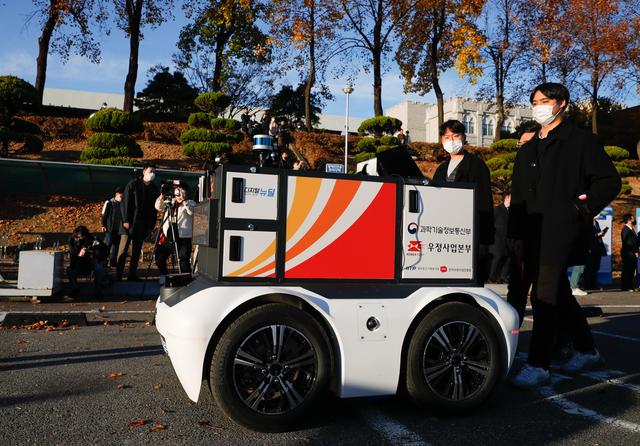A latest survey recently released by the Korea Federation of Small and Medium Enterprises shows that more than 90% of the country's small and medium-sized enterprises have not yet used artificial intelligence technology. According to South Korean media, compared with large companies that have already introduced artificial intelligence technology, this highlights the "huge digital gap" in South Korea's business field.
On October 20, people enjoyed the autumn scenery at Namsan Park in Seoul, South Korea. Xinhua News Agency (Photo by Park Jintaek)
According to a report by Korea Business Telegraph on the 5th, the Korea Federation of Small and Medium Enterprises conducted a survey on 300 small and medium-sized enterprises in September and October on the use of artificial intelligence technology in operations and found that 94.7% of them The company currently does not use artificial intelligence technology. The survey also showed that only 16.3% of respondents expressed interest in adopting artificial intelligence technology in the future. Among 249 companies that neither use nor plan to use artificial intelligence, 80.7% believe that artificial intelligence is not necessary for their business operations. In addition, 14.9% of companies expressed uncertainty about the potential benefits of artificial intelligence to business management, and 4.4% expressed concerns about the use and maintenance costs of artificial intelligence technology.
On October 28, 2020, in Sejong City, South Korea, staff demonstrated an auxiliary delivery robot that can follow the movement of couriers. Photo by Xinhua News Agency reporter Wang Jingqiang
For companies planning to use artificial intelligence, the primary target areas include quality inspection, market development and marketing, and sales data analysis and forecasting through visual systems. When it comes to budget expectations, 66% of companies plan to spend no more than 10 million won (approximately 51,000 yuan). Companies surveyed cited several key barriers to AI adoption, including a lack of customized applications, limited investment capacity, and insufficient access to available data and infrastructure. These companies have expressed interest in financial incentives and tax benefits, as well as tailored success stories and performance demonstrations, as potential support measures to promote artificial intelligence. A person in charge of the innovative growth department of the Korea Federation of Small and Medium Enterprises said: "Small and medium-sized enterprises need support to experience the efficiency gains brought by artificial intelligence, starting with business support functions such as customer service, budgeting and marketing. Now is the time to actually increase Strengthen the understanding of artificial intelligence technology among small and medium-sized enterprises.”

